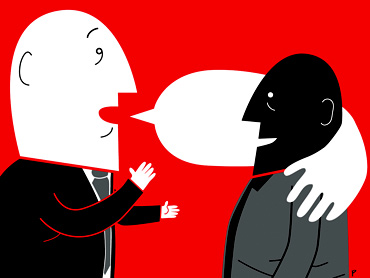Think about your daily life. Find examples for each situation: a.)an instance when you lose face, b.)an instance when you gain face, and c.)an instance when you preserve face. How are these situations realized linguistically?
Also, do you believe that people try to preserve the faces of other people in the social setting? Why or why not? Cite specific examples from daily life to support your opinion.
Subscribe to:
Post Comments (Atom)

Lose face example: If someone tries to deceive you and still insist on doing not so even when you realize that. and lingustic form: Abi valla durum öyle değil,ben senin iyiliğin için öyle diyorum. (friend,clearly it'S not the situation I do it for your own good.
ReplyDeleteI believe, a good number of our daily life conversations are based on preserving others’ face, in fact, with the hope of preserving our face, which is an implicit and unsaid deal between two sides of communication. It is the shared assumption that enables people to understand the intended meaning rather than interpreting each and every word literally. Otherwise, it would be odd to the nature of communication to react to a person who has said “Good luck in your exam!” with “How can you be so sure of the presence of luck?” instead of saying “Thank you!” as it leads the first speaker to lose face violating the presupposed reaction.
ReplyDeletei am on the view that a clear communication is possibly prevented when we lose face. For example, during lecture if i do not find the chance to preserve the face of the instructor i generally cannot get exactly what she/he means.i also have problem in communicating via phones, that is to say gaining face makes me maintain a mutually explicit communication.
ReplyDeleteGürol,
ReplyDeleteThis is a good linguistic example involving face, but it falls under the category of 'saving face' more than 'losing face.'
When losing face, I observed that people get nicer and nicer. They try to change the center of attention and topic and their voices become high pitched. For example, a friend of mine didn't keep her promise which was important to me. She came to me feeling quilty and looked at me like a cute puppy by saying "Let me order u ur favourite dessert, my best friend."
ReplyDeleteI think the reaction changes from person to person. If someone feels really really sorry in the case of losing face, they speak calmly and seriously, and apologize for their act. However, if they are just trying to get the answer "OK, I forgive you"; as Melike said, they behave just like a puppy. They lower the tone of voice, trying to be cute; and they especially use words such as sweety, honey, dear, sugar.
ReplyDelete